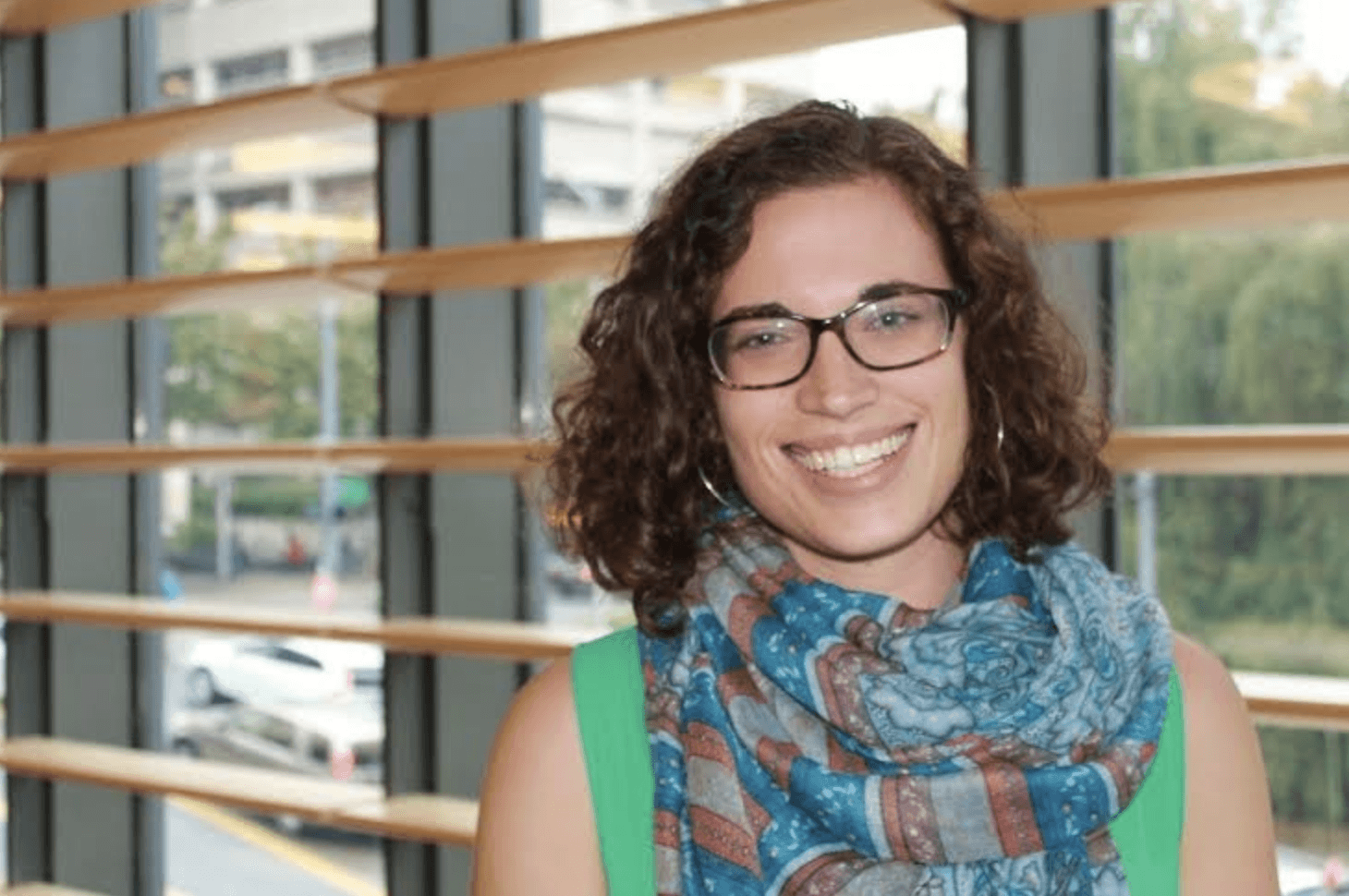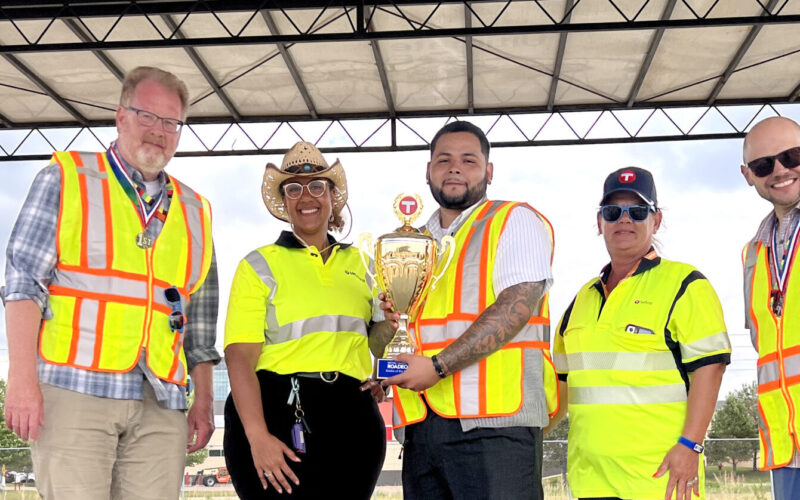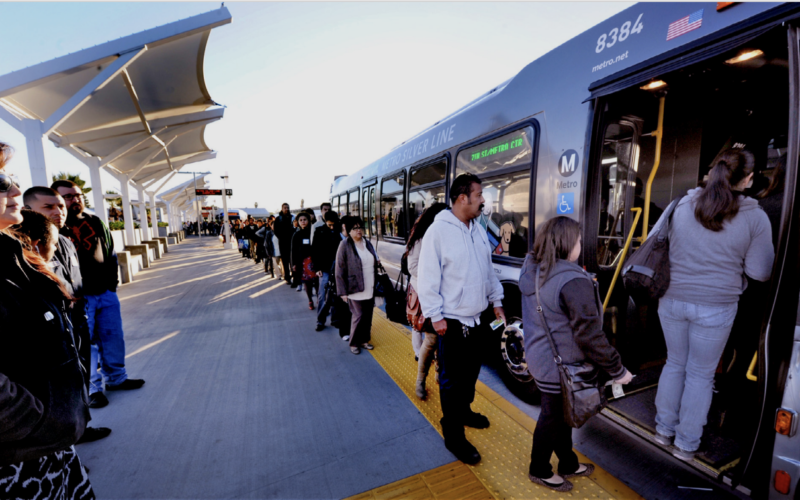
Danielle Wallace is a member of TransitCenter’s inaugural Women Changing Transportation mentorship class. Women Changing Transportation is a year-long program developed in response to the underrepresentation of women in the transit workforce. It aims to create connections and provide support for reform-minded women in the industry who are committed to making transit more effective and equitable.
Danielle has worked at King County Metro Transit for the past two years as the agency’s Apprenticeship Program Manager, where she helps to build apprenticeship career pathways in trades throughout the agency. We recently spoke to Danielle about the value of transit apprenticeships, and why the Women Changing Transportation program matters.
–
Tell us about the program you run! What problem is it attempting to solve?
My role at King County Metro is to develop new apprenticeship programs in our hard-to-fill transit trades positions. We can’t hire fast enough to fill our transit maintenance positions for many reasons – transit is growing in our area, we’re facing a wave of retirements of skilled employees, fewer people are going into trades, and many of our trades require skills that are unique to the transit industry. At the same time, we have a workforce who want to grow in their careers at Metro. We want to provide our employees (and the broader community) opportunities to develop their skills and become skilled crafts people, while recognizing that we need to create pathways for women and people of color who have traditionally had less access to these good jobs. We’re building apprenticeship programs in key trades that incorporate four-year on-the-job training and formal classroom instruction, which will result in journey-level trades jobs. We have had a long-standing Bus Mechanic Apprenticeship and have just launched a Light Rail Electrical Worker Apprenticeship and a Building Operating Engineer Apprenticeship.
How are you measuring success?
Our measures will include how many employees complete the apprenticeship and graduate to journey-level positions. We’ll also measure skill gains over the apprenticeship, employee retention, employee advancement, and safety. We’re in the early stages of the 2 new apprenticeship program, so we’re currently using a lot of process measures to assess how we can adapt and improve program development.
What obstacles is the program currently bumping up against?
Although apprenticeship has a great return on investment in the long-term, it’s very resource intensive during the start up phase. Metro hasn’t developed new programs of this scale in a long time, so we’re working together to figure out how to resource apprenticeship programs and help apprentices succeed. Metro is making a big investment in our employees, so we want to make sure that apprentices have everything they need and that work groups are prepared to support the long-term learning of apprentices.
Transit is a powerful community resource that connects people to their most basic needs.
Why are initiatives like Women Changing Transportation important? More broadly, why is having diverse transit workforces important?
I’ve only been working in transit for a few years, but it’s been rare that I’ve been in a room of all women. Women Changing Transportation has given me the opportunity to learn from women leaders from across the industry who are working to advance equity access to transit, planning, rider voice, and more. As publicly funded institutions, I believe that it’s the responsibility of local agencies to represent the community we serve and right the historical wrongs perpetuated by public institutions. I’ve heard community leaders share the saying “If you’re not at the table, you’re on the menu.” Transit is a powerful community resource that connects people to their most basic needs. If transit isn’t serving our communities equitably, especially those communities who have been impacted by institutional racism and sexism, then we’re not doing our jobs. And we can’t do our jobs without those voices at the table to share their perspectives and make decisions.
If you could wave a magic wand and change one thing about how transit in the US is run, what would it be?
I would love to see everyone have access to transit and affordable housing. During my career in helping people connect to jobs and develop skills, the biggest struggle is often addressing basic needs, like finding an affordable place to live or paying for transportation. How can we expect folks to do their best at work if they don’t have a stable place to sleep every night? In places like Seattle, many have been pushed further and further from transit hubs because housing is so expensive, and that most impacts people of color and low-income folks. It’s hard to make the case for using transit, when it’d take 2 hours and 6 buses each way. Transit is key to creating a more just economy in which everyone can participate in an equitable and meaningful way.
Hear more from Danielle:
 New TransitCenter Report: To Solve Workforce Challenges Once and For All, Transit Agencies Must Put People First
New TransitCenter Report: To Solve Workforce Challenges Once and For All, Transit Agencies Must Put People First
TransitCenter’s new report, “People First” examines the current challenges facing public sector human resources that limit hiring and retention, and outlines potential solutions to rethink this critical agency function.
Read More “Who Rules Transit?” Chronicles the Gulf Between “Who Decides” and “Who Rides” at Transit Agencies
“Who Rules Transit?” Chronicles the Gulf Between “Who Decides” and “Who Rides” at Transit Agencies
Our latest report reveals a yawning gap between the demographics of transit riders – primarily women and people of color – and leadership at transit agencies – primarily white men.
Read More